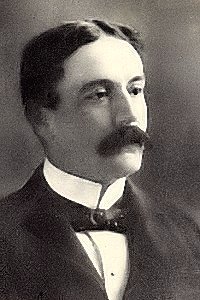Introduction

Born: September 15, 1863, Auburndale, Massachusetts.
Died: December 18, 1919, Cedarhurst, New York. He caught pneumonia while preparing for a trip to the West Indies for health reasons.
Buried: St. Mary’s Cemetery, Newton Lower Falls, Massachusetts.
